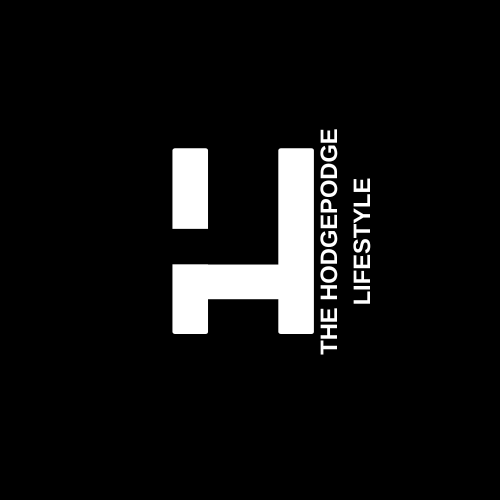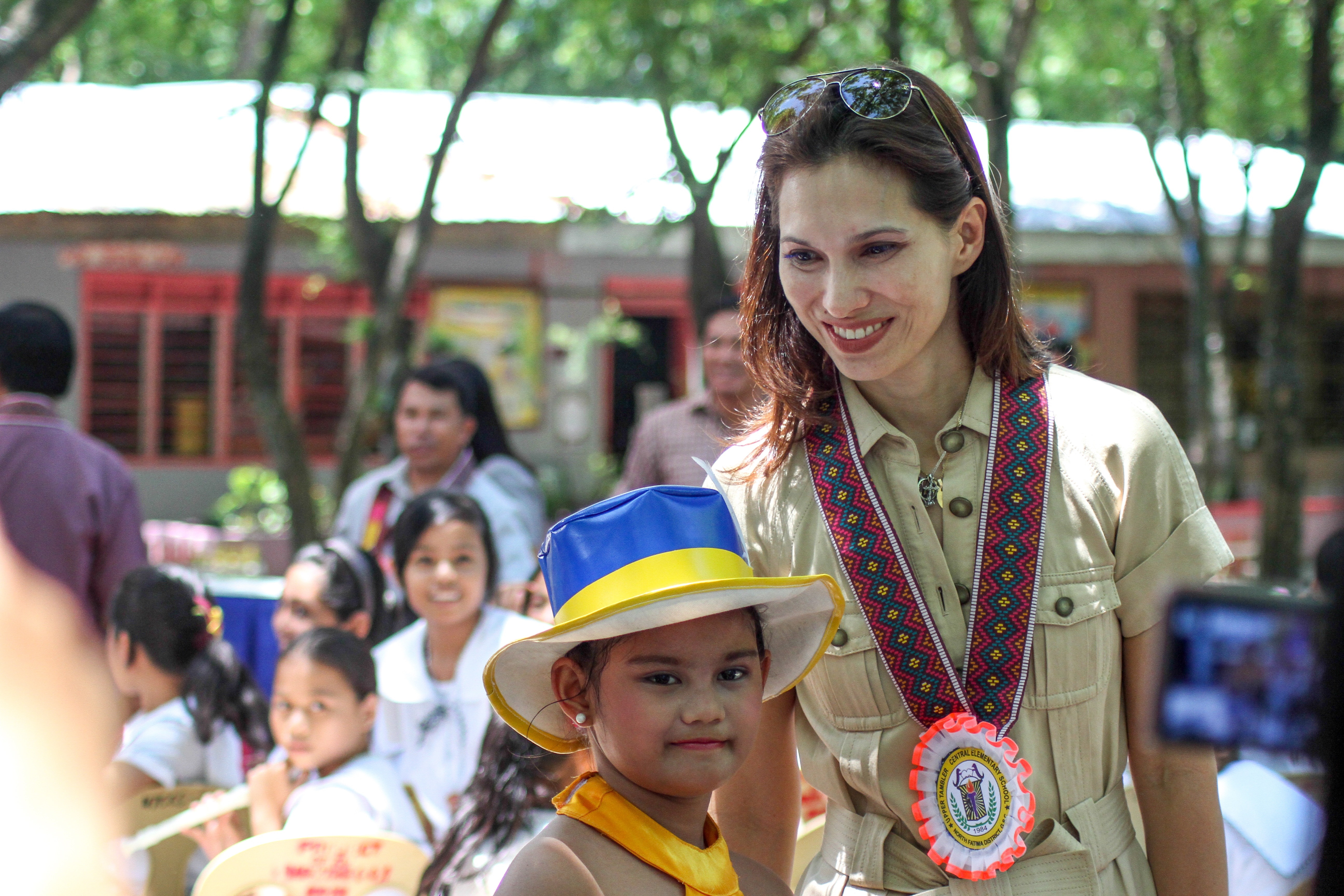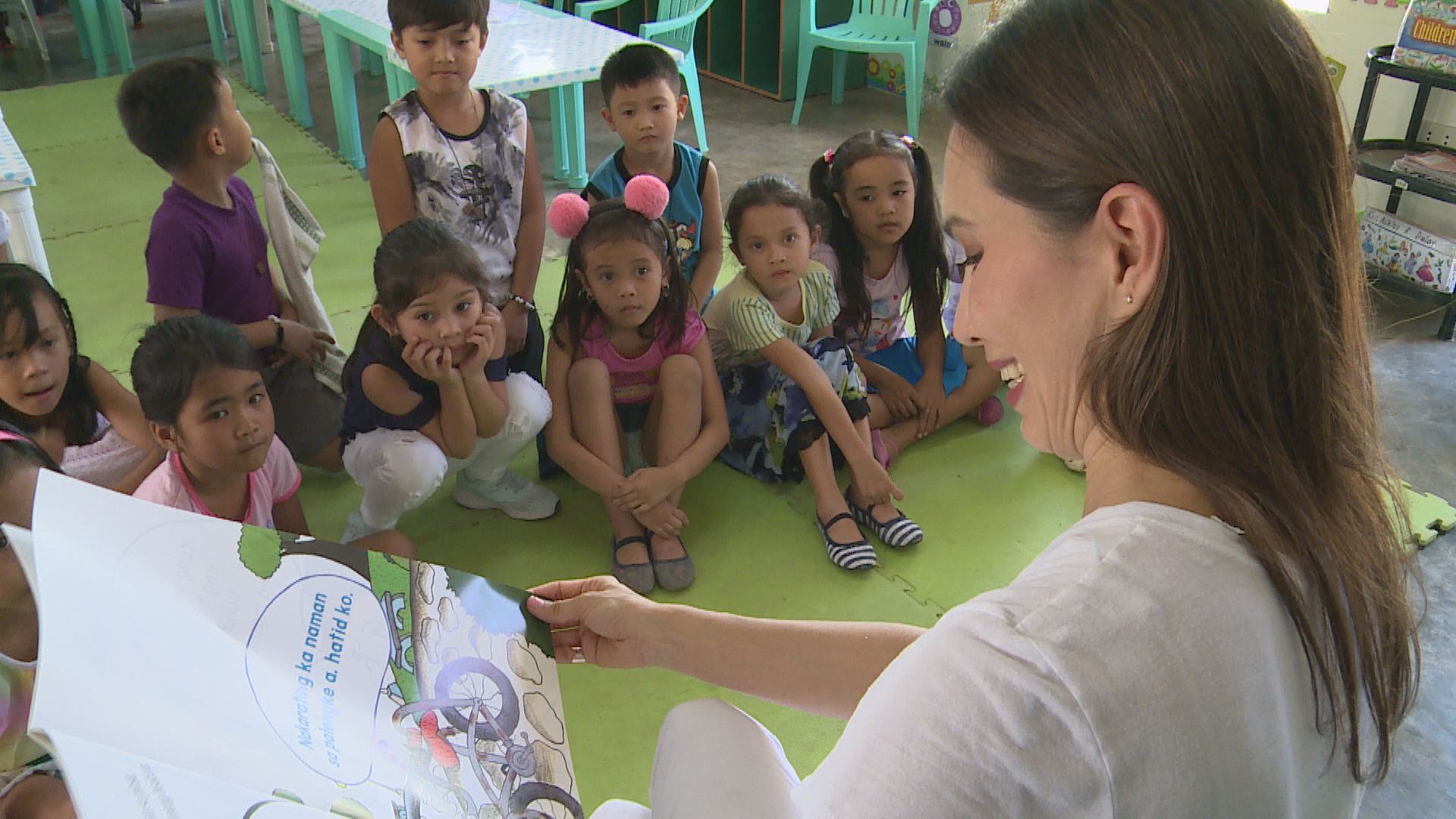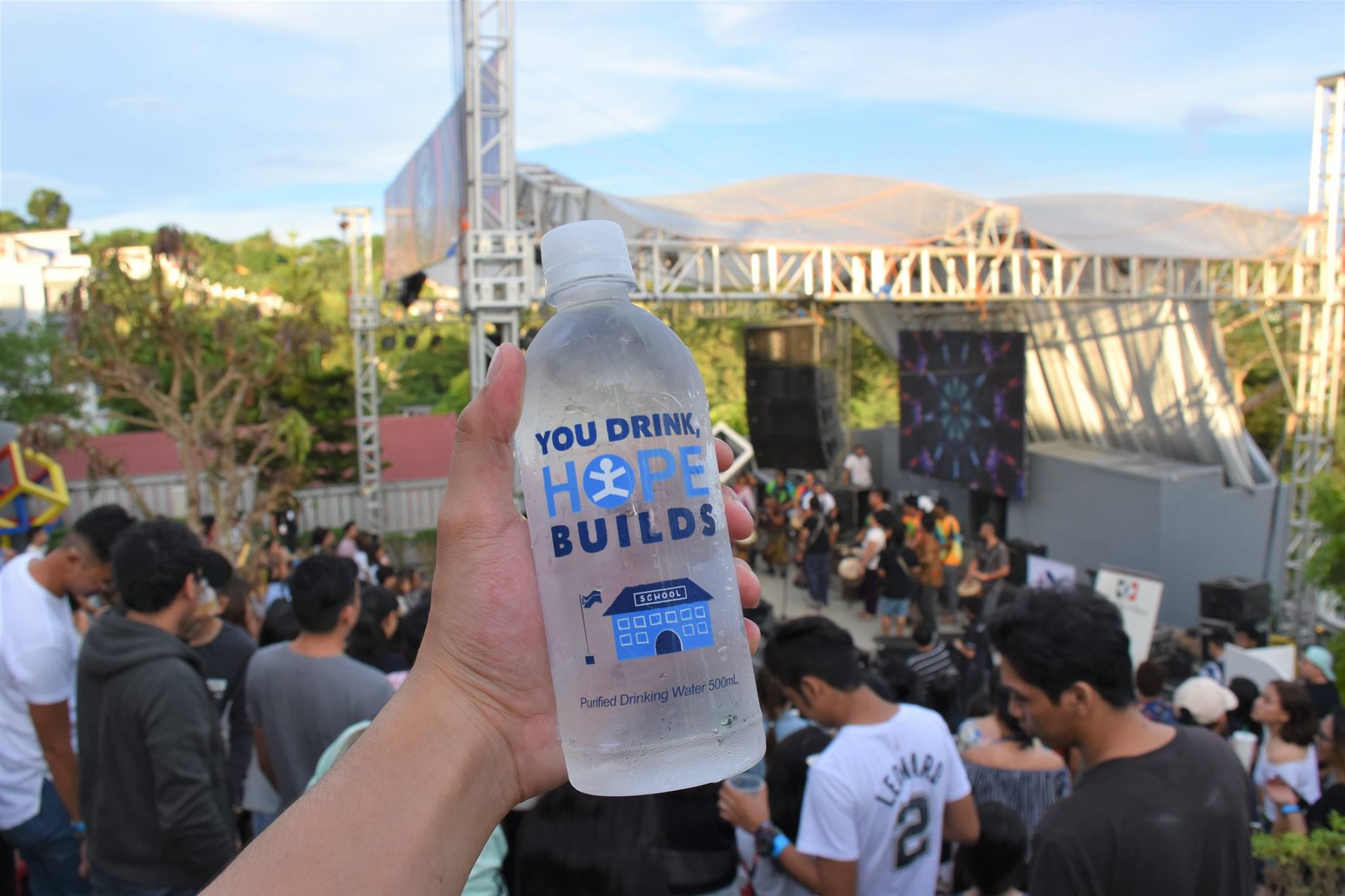 One of the leading international news network, CNBC, premiered the latest episode of Managing Asia last June 22. CNBC’s Christine Tan sat down with former Filipino actress and Generation Hope founder Nanette Medved Po.
One of the leading international news network, CNBC, premiered the latest episode of Managing Asia last June 22. CNBC’s Christine Tan sat down with former Filipino actress and Generation Hope founder Nanette Medved Po.
So what has the former actress and host been up to these days? Certainly a different field from playing the Filipino comic icon Darna. She has founded the organization Generation Hope and the Hope in a Bottle to build schools for children and deal with clean drinking water.
Medved Po has recently partnered the convenience store retail chain 7-Eleven who helped build a classroom for students at the Laguna South Manila. She also reached out to coffee chain Starbucks and has partnered with other 400 retailers.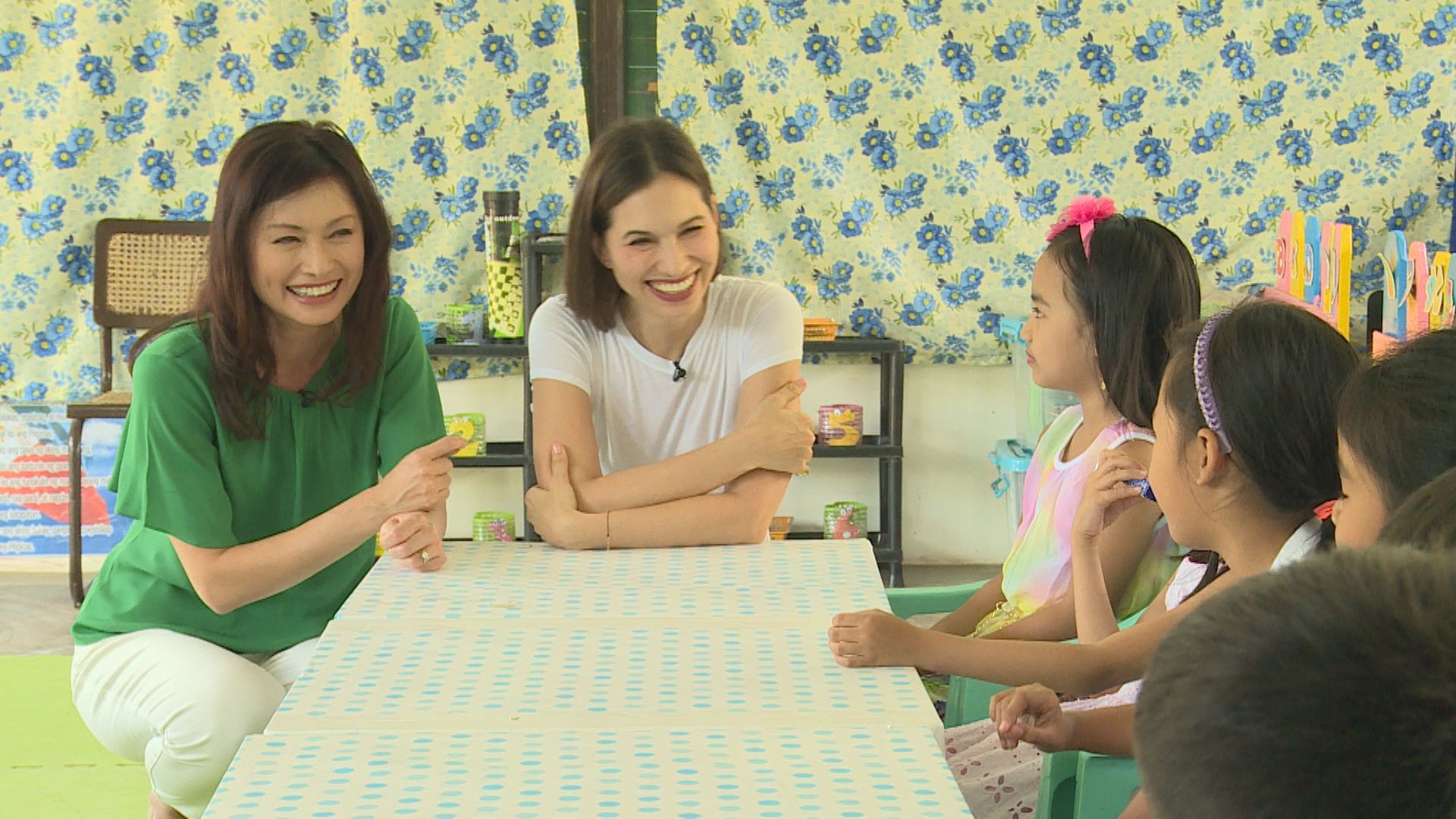
Christine Tan: So Nanette, you were an award-winning television actress and host. At what point in your career did you get the calling to do good?
Nanette Medved Po: What I saw when I was in my career as an actress was the possibility to leverage my popularity to do that, and so what I found was an avenue to do good. I remember I was in a parade for Christmas promoting a superhero film, and just seeing everybody around.
Christine Tan: You were the heroine back then right? You played the superhero Darna that everybody in the Philippines is familiar with?
Nanette Medved Po: Correct, yes, she’s very popular. So what happened was that I saw all the young kids and even the older folks just looking at you differently.
Christine Tan: There was hope in their eyes? They were inspired and awed? You felt you could change things?
Nanette Medved Po: I thought there must be a way where you could leverage this very positive goodwill and do something good with it, so that was the moment when I decided there might be a way for me to do that. I had witnessed great poverty as I was working here before going to school and travelling around the country. I’ve witnessed the incredible success that can be had in the business community but I also witnessed how non-profits really struggle and spend a lot of time fund raising – more time than they should be, because they want to focus on impact.
And so I thought, “What if we could create a hybrid where you have the discipline of the private sector to generate funds, and then rather than dividend that out to shareholders, use that towards a social good whether it’s the environment or in education or in employees, or whatever it is.”
Christine Tan: So how did you stumble upon the idea of selling bottled water?
Nanette Medved Po: If I had said that I’m going to invest in books or teacher training, only a very small portion of the population would understand how that converts and what the ripple effect is. But everybody understands a building. You go there and you see it, you see it today, you see it tomorrow, you see it next year, it’s not going anywhere, so it’s something very tangible and I wanted to be able to make a very direct link between this cause and this effect. Classrooms were something the government really needed at the time so there was a nice dovetail between what they wanted to do and what we wanted to do.
Christine Tan: So 100 per cent of your profits at Hope go towards building these classrooms here in the Philippines. Now, at that time you had all this experience in TV acting, but no experience in business. What was it like getting the idea off the ground? Was it crazy?
Nanette Medved Po: Yes, that was a challenge. I think people immediately thought she’s finally gone off her rocker, she’s certifiably crazy. I had no business experience especially in consumer goods and so when I made calls and said I’m coming to pitch something I truly think people thought I was going to come in and do a song and dance. I actually think the people allowed me the audience because they were curious – I mean, what is she going to say?
Christine Tan: So your celebrity status did help you open doors? Win them over.
Nanette Medved Po: Yes, so I leveraged that to be able to kind of get in the door and then hopefully once I get in the door. Be able to convince them to roll the dice and take a chance on us, but after which you then need to prove that you can do this and execute well
Christine Tan: You know selling bottled water is a very competitive cutthroat business. What were your conversations like with the retailers who also carried other brands of water? What did you tell them?
Nanette Medved Po: We approached big companies, Starbucks, 7-11, those types of people and they were all very encouraging of what we were trying to do and were willing to take this journey with us
Christine Tan: So how exactly do you scout which schools need classrooms?
Nanette Medved Po: The first step is always that we square up with the Department of Education because they have a list of all the areas around the country that need classrooms. So we always start with that list and then if we have a donor, let’s say for example Starbucks, we will then ask them if there’s a location they prefer their building to be in or if they prefer to leave it up to us. Once we have a shortlist, our staff then goes only to those locations to vet which schools actually do need classrooms, if they have the land to build.
Christine Tan: How much shortage of classrooms is there in this country?
Nanette Medved Po: The number that they do give to us somewhat unofficially is that there’s a gap of about 84,000 classrooms so I don’t think we’re making too much of a dent. Hahaha!
Christine Tan: So in a way you’re helping the government with the shortage?
Nanette Medved Po: Correct. We only build in partnership with Department Of Education on their land so that they can run the school after we’ve turned over the infrastructure. We really are partners with the government here. The structural design is dictated by the Department of Education, so there are specific measurements that we follow, 7 by 9 and all that. Every classroom has its own bathroom, chalkboard, teacher’s table and chair, 50 chairs and 2 electric fans so that’s the standard that we try to deliver for every classroom.
Christine Tan: So up to date you’ve built about 57 classrooms here in the Philippines. How much impact do you think your classrooms have had on children here in the Philippines?
Nanette Medved Po: Again on a macro level I don’t think we’ve had a lot of impact, but on the individual school level I think the students feel much empowered by the fact that people want to invest in their future. We’ve had 2 batches of children come through, there’s a 3rd batch coming through and they always seem very excited to be in this classroom so we enjoy watching that journey. But I hesitate to be very concrete about the impact that we’ve made just looking at it in a very short period of time.
Christine Tan: What’s your pipeline looking like when it comes to building classrooms this year?
Nanette Medved Po: We’re planning 33 for the year so far. We’re hoping it wraps up towards the end of the year but so far it’s our largest number of buildings in the year.
Christine Tan: So walk me through the process, at what point do you sell enough bottles at a retail store with a retail partner that you say to them “Hey, we get to build a classroom?”
Nanette Medved Po: We don’t get involved with the profits of our partners. So let’s say in the case of 7-Eleven, when they buy water from us and then sell it to their customers, the profit from their end is purely theirs and we don’t touch it. It’s just the profit on our end, on the Hope end.
Christine Tan: Was it daunting, doing it yourself? But are you comfortable with it now? Does it come as second nature to you?
Nanette Medved Po: Yes, it was terrifying and humbling all together. It was scary because given my background, sales was probably not going to be my most comfortable job. I think it does now. At the beginning I thought of it more as people were trying to do me a favor by buying into this idea but I now realize that this is very much a wonderful project that people like to be a part of and so I don’t feel as bad anymore when I come in and say “Hey look I’ve got this project do you think you might want to come onboard for business for good?” and so I realize now over time that we do add some value and that customers like to work with us
Christine Tan: How many retail partners are you hoping to sign on in future? Do you have a number in mind?
Nanette Medved Po: If I can be greedy I‘d like them all. But the truth is the objective is not to go out and take over the landscape of the bottled water business. The objective is to make a point and hopefully there will be other businesses who will think about investing in social good through their business, and if somebody comes along and decides they want to do the same thing we’re doing and do it better then fantastic, but what we’re really trying to do is introduce a model for giving back that’s good for everybody.
Christine Tan: So Nanette, we’re here at the factory you acquired last year to produce bottled water. You still outsource to 2 production facilities, so what does this latest investment give you?
Nanette Medved Po: Our volumes are large enough now that we feel like we want to try our hand at manufacturing. I think that as we continue to grow, we’ll want to understand how that benefits us, and this gives us a way to test that. It’s a small factory so it’s not expected to impact our volumes tremendously, but when it’s up and running we hope that it will contribute maybe 50,000 cases a month. So we’ll still rely on the 2 partners that we currently have which toil for us but this will give us a nice way to test the waters so to speak on manufacturing.
Christine Tan: It’s been 6 years and you’ve sold over 13 million bottles of water and built 57 classrooms here in the Philippines. What is your ultimate ambition for Hope, what are your future expansion plans?
Nanette Medved Po: I don’t think we have ultimate ambitions of conquering the bottled water industry. I think our ultimate ambition is to provide proof of concept, hope that other businesses find some inspiration in what we’ve done and hopefully find their own social good to champion. So that’s the ultimate goal for us and if we happen to be able to build many classrooms in the process then wonderful, but we’d really like to provide a new mindset to the business community that the market will reward companies who try to do the right thing.
Christine Tan: This wall is very special to you?
Nanette Medved Po: This wall is very special to us because it’s a replica of a wall from one of the classrooms we built in Mindanao, and before we arrived at this location, the school had not a single classroom, like none, and even the principal didn’t have a place to stay
Christine Tan: You know when you build classrooms you touch the lives of children and their families. Is there a moment, a personal encounter you’ve had, that you saw or that you felt that gave you so much satisfaction?
Nanette Medved Po: There are quite a few but given that we’re in this location I’d like to talk about this one story. So when we came here that day, they had such a big fuss about the turnover and us coming and they were all thanking me personally. They had a big banner on the stage, with “Thank you Nanette Medved Po” and a whole lot of speeches. It was very jarring because it was embarrassing that they thought it was me, but it was a great moment to share the message with them and also to reinforce to myself what we’re doing here.
So what happened was this, I said to them “I appreciate that you think I’ve given you a classroom today but I really haven’t. I just had the idea but there are half a million nameless, faceless folks out there who made the decision to invest in your future and those are the people that you should be thankful for and the partners who allowed that to be possible.” And what that showed me is that we can come together for common good, for a common ground as people to do big important things. And so I felt at that moment that the traditional thinking about charity where 1 person makes the decision to change the lives of 36 kids is very different than 500,000 decisions because the ripple effect of that is bigger.
Christine Tan: When it comes to leading change and trying to make a difference, what kind of leader are you trying to be?
Nanette Medved Po: I think I’m not accustomed to leadership in the traditional sense because the field I was in before didn’t necessarily require it. So I think my leadership style is very much evolving and organic, I tend to learn from the people I interact with and it’s not necessarily all taipan types, it could be somebody rank and file. So yes, I think I’m growing organically as a leader because when Hope started, it was a very small group and as the group starts to grow my leadership is evolving as the team gets bigger and I’m noticing that leading 20 people is completely different from leading 50, the systems you need in place. And I’m sure as we grow my leadership style will change but it’s very organic at the moment, very ad hoc.
Christine Tan: And finally looking back at your journey using profits from your bottled water business to build classrooms, any advice you would give others on how to build a sustainable social business model?
Nanette Medved Po: Yeah, I think you need to be able to wear the business hat first before you do anything, because if you do that then you can think about scale. I think philanthropy is wonderful and charity is wonderful but I don’t think it’s going to create the kind of change long term that we’re going to need to see for very big problems whether it’s in the education space or the healthcare space or the food space.
Christine Tan: So you’re in a position to contribute and give back?
Nanette Medved Po: Right, correct, so that’s where I think Hope is right now. We have proof of concept but we need to get to the scale wherein we’re really making meaningful change and I think that’s what we’re looking to do
Christine Tan: Do you think you have that sustainable, scalable business model today for your social venture?
Nanette Medved Po: I certainly hope so. We ask ourselves that question every day “Is this an idea then that we can scale, is this a system that we can scale,” and we do that as we grow out hoping that we’re prepared for growth and therefore being able to help in a very big way.
Interview and photos courtesy of CNBC International
CNBC’s Managing Asia is the Asia Pacific region’s interview TV programme featuring CEOs, entrepreneurs and other business leaders.
Asia (SIN/HK)
- Friday 17:30
- Saturday 10:00, 19:00
- Sunday 04:00, 06:00, 08:00, 18:00
Australia (SYD)
- Saturday 19:00, 22:00
- Sunday 01:00, 03:00, 06:00, 09:00, 16:00, 18:00, 20:00
- Monday 00:00
Europe (CET)
- Saturday 00:00, 03:00, 07:00, 16:00, 19:00
- Sunday 02:00, 04:00, 06:00, 10:00, 15:00, 18:00
